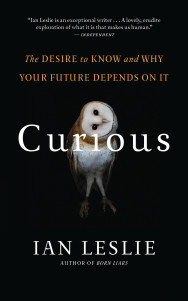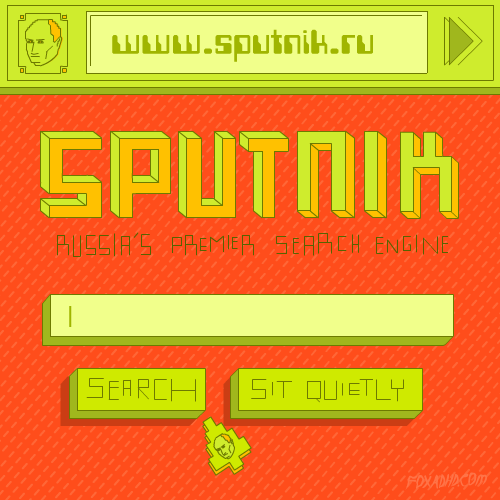Rebel, Rebel, I like your… curiosity.
“Curiosity is unruly. It doesn’t like rules, or at least, it assumes that all rules are provisional, subject to the laceration of a smart question nobody has yet thought to ask. It disdains the approved pathways, preferring diversions, unplanned excursions, impulsive left turns. In short, curiosity is deviant.” – Ian Leslie
 This introductory statement to Ian Leslie’s Curious: The desire to know and why your future depends on it, hit me like a meteor to the noggin. I can tell you that I didn’t consciously choose ‘curious’ as the title for this blog or as descriptor of myself four years ago with any philosophical thought on what curious meant. I was about to embark on a journey that was radically different to that of my upbringing and wanted to use my blog to approach the cultural differences with an open mind. Four years later, I hope this version of curiosity infiltrates my life and intellectual approach.
This introductory statement to Ian Leslie’s Curious: The desire to know and why your future depends on it, hit me like a meteor to the noggin. I can tell you that I didn’t consciously choose ‘curious’ as the title for this blog or as descriptor of myself four years ago with any philosophical thought on what curious meant. I was about to embark on a journey that was radically different to that of my upbringing and wanted to use my blog to approach the cultural differences with an open mind. Four years later, I hope this version of curiosity infiltrates my life and intellectual approach.
While I studied socio-cultural movements in history during my undergrad, I longed to experience a rich culture like Europe’s. I believe that a strong and vibrant culture makes a great society. Ian Leslie confirmed my historical affirmations with this:
“A society that values order above all else will seek to suppress curiosity. But a society that believes in progress, innovation, and creativity will cultivate it, recognizing that enquiring minds of its people constitutes its most valuable asset. […] by the time of Enlightenment, European societies started to see that their future lay with the curious, and encouraged probing questions rather than stamping on them. The result was the biggest explosion of new ideas and scientific advances in history.”
So, yes it’s clear that curiosity is important to all societies but what does it mean to be curious in one’s day-to-day life?
Leslie explains that there are three types of curiosity. First, there is diversive curiosity. It is the “restless desire for the new and the next.” It’s essential in the beginning stages of learning for both children (such as eating dirt) and adults (like checking twitter every 20 minutes). Diversive curiosity encourages us to seek out new experiences and meet new people. However, if it is not given time to grow it can be a terrible waste of time. The knowledge can be found in passing, forgotten soon after being discovered, and then nothing is gained. But, it’s a lot of fun and can often lead one down a road to greater discovery.
The gold in the treasure chest and the next level up from diversive is epistemic curiosity. It is a deep and meaningful search for answers that nourishes the human psyche and drives great societal achievements (such as landing a robot on Mars). Leslie argues that both forms of curiosity have always been with humans but it wasn’t until the modern era that epistemic curiosity really flourished. He says that the invention of the printing press allowed people to read, share, and combine ideas. Paired with the industrial revolution that gave people the extra time to think and experiment.
And the third is empathic curiosity, which is curiosity about the thoughts and feelings of others. This isn’t gossip but genuinely imagining yourself in another’s position and try to see things from their perspective.
All in all, curiosity is social and contagious. As is incuriosity – dum, dum, duuuum.
After the reader is introduced to the different types of curiosity, Leslie delves into the implications of curiosity in learning and our everyday lives.
I particularly liked the section on the importance of curiosity in kids. I’m not planning to have kids any time soon and quite frankly the idea of raising a child frightens me. But, Leslie’s information on how children learn and how curiosity can be used to cultivate independent thinking made me wonder if there might be hope for me as a future parent yet. Now, I plan to be patient and helpful with the strange questions from the toddlers that belong to my friends.
I even put some of the ideas in this book to the test in my professional life. One morning, my co-workers and I received an email from an upset client. Things were said and there was the potential for comments to be taken out of context. Leslie argues that it’s important to ask questions when in negotiation because it’s an opportunity to see what you may have not considered but is an underlying issue to the task ahead. It sounds simple, but often no one asks, “Why?” and ends up using their own perspective to decide what was implied by the speaker. This ends in miscommunication and possibly a missed desirable outcome for everyone involved.
To lower the tension of the situation, I suggested we try this approach and we simply asked, “Why are you feeling this way?” The client responded with less anger and more openness after a moment to reflect. The tone of the conversation went on the upswing and we gained insight into the client’s previously unspoken concerns.
 To wrap it up, because this is getting long but I could talk about this book for a good hour with almost anyone, Leslie discusses how the vast amount of information available on the internet has had ill effect on curiosity. I bet you are a bit surprised. A study by James Evans of the University of Chicago was used as an example. Evans has found that the broadening of information online has led to a ‘narrowing of science in scholarship’.
To wrap it up, because this is getting long but I could talk about this book for a good hour with almost anyone, Leslie discusses how the vast amount of information available on the internet has had ill effect on curiosity. I bet you are a bit surprised. A study by James Evans of the University of Chicago was used as an example. Evans has found that the broadening of information online has led to a ‘narrowing of science in scholarship’.
In his study of 45 million scholarly articles spanning between the years of 1945 to 2005, he expected there would be a larger array of citations and research in the academic papers once the internet was introduced but that was not the case. He believes this is due to the ratchet effect of search engines where popular articles get a higher rating in the search engine and create a consensus of what articles are important and those that are not. The same articles continue to show up and the lesser known sources are harder to discover. The tidy and efficient way of researching online has had a shrinking effect on investigation.
In the end, this book provides a lot to think about regarding human nature and our capabilities. Leslie believes that currently curiosity throughout the world is experiencing a lull. I hope my generation and those after can prove him wrong…



[…] I have been artistic collaborators for years and I was so happy to have a long chat with her about curiosity, art, well-being, and confidence. I also talk about my Sober Summer comic, recalibrating my […]